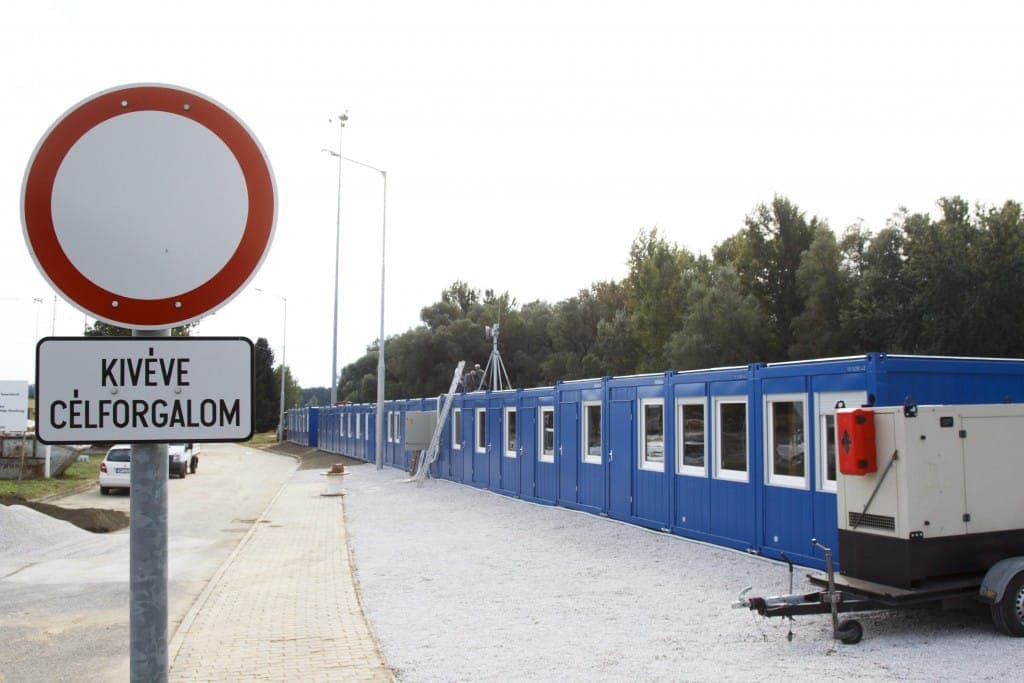
Strasbourg Human Rights Court orders compensation to father and son for 1.5 years of detention
Transit zones have been shut down for 3.5 years in Hungary, but this cruel detention regime has not disappeared without a trace and is still haunting the European Court of Human Rights (ECtHR). Yesterday, the number of its judgments in which asylum seeker applicants won against Hungary, all successfully represented by the Hungarian Helsinki Committee, rose to ten.
Translation is available for this content
Váltás magyarraFrom 2019 until yesterday, the European Court of Human Rights (ECtHR) had ruled in favour of the Hungarian Helsinki Committee’s clients, asylum seekers detained in transit zones, in altogether nine judgments. The number of successful cases has now increased to ten.
The Hungarian government only closed the transit zones and released asylum seekers, families, and children detained (some of them even for over one year) after the EU Court of Justice ruled in May 2020 that detention in transit zones was unlawful.
Before that, for five years, applying for asylum in Hungary was effectively only possible in the transit zones. (Since the closure of the transit zones, it’s impossible even to lodge an asylum application in Hungary.) These were inhuman container prisons with barbed wire fences, armed guards and guard dogs. In summer, the incredible heat, in winter, the cold made life even more miserable for people here. Men were often denied food for days on end, and the Hungarian Helsinki Committee had to intervene in the ECtHR to stop their starvation.
Between the summer of 2018 and the spring of 2020, Hungarian authorities deprived 34 people of food who had been detained in the transit zones. On the initiative of the Hungarian Helsinki Committee, the ECtHR ordered the authorities to give food to the detainees as an immediate measure in each of these cases (24 in total).
The transit zones were not gateways to refugee protection in Hungary – as the government promised – but their fundamental role was to discourage and wear out asylum seekers. The state treated them as if they were criminals. But the culprit was, in fact, the Hungarian state. The Tompa and Röszke transit zones became a disgrace to the country.
AB. S. and AR. S. v Hungary
The Iranian man and his 9-year-old son entered the Röszke transit zone in December 2018. They applied for asylum there. The Hungarian authorities first denied them asylum without a fair examination and then expelled them to Serbia, where they had previously waited for 2.5 years to enter Hungary legally. Having been persecuted in their home country, they could certainly not return there because of the dangers they faced and could easily have been deported from Serbia, even to Iran. So, they appealed against the decisions. In response, the authorities refused to provide the father with food. They only agreed to do so after the ECtHR had ordered them through the intervention of the Hungarian Helsinki Committee.
The case of father and son even reached the Court of Justice of the European Union. The Court ruled that inhuman and degrading detention in transit zones without legal remedy is unlawful. Their case was instrumental in obliging the Hungarian government to close the transit zones in May 2020. The Hungarian Helsinki Committee’s Iranian clients were only released afterwards, among the last ones, on May 20, 2020. Father and son were locked up for 17 months as if they were criminals. Instead of receiving proper education like any child his age, this little boy had to spend his early school years in exile and detention.
They were finally granted asylum and have been living in Hungary ever since.
On November 30, the European Court of Human Rights ruled that the state had violated the human rights of the Iranian man and his young son. The extremely prolonged detention in the transit zone was unlawful and took place in inhuman and degrading conditions without any possibility of legal remedy.
The peculiarity of this latest case is that the father and his son were detained in the transit zone (in two separate sectors of the transit zone) in two different procedures, one in relation to their claim for asylum, and another one in relation to their expulsion, on various legal grounds (during the latter procedure, if possible, in even poorer conditions). The European Court of Human Rights found both cases to be unlawful detention. The Court also awarded them € 17,500 in just satisfaction.